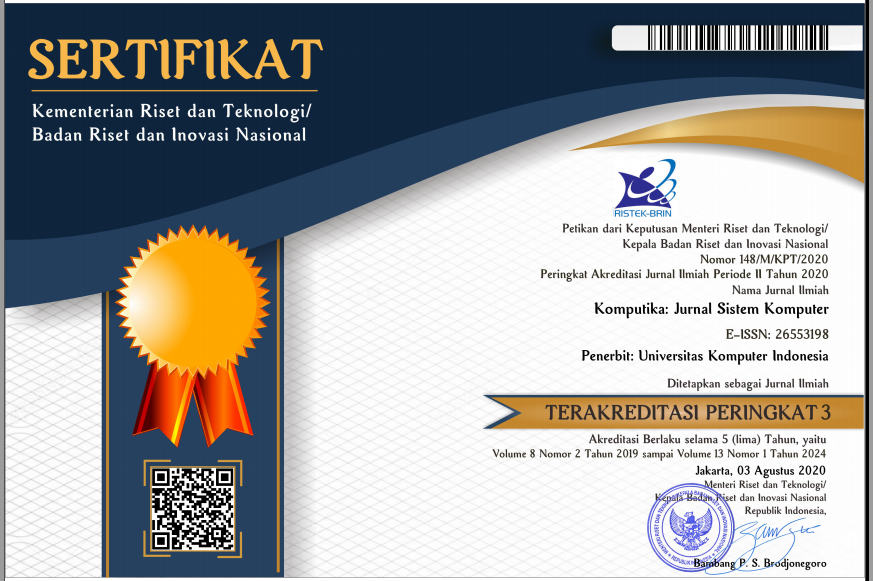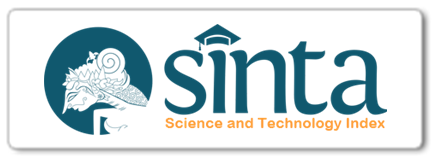Gim Edukasi Bernarasi Cerita untuk Edukasi Prasekolah Normal Baru: Studi Kasus di TK Lintang, Surabaya
DOI:
https://doi.org/10.34010/komputika.v11i1.4315Abstract
Educational games are a state-of-the-art method for education in the 21st century. However, they have not been applied for new-normal education in preschools. To contribute to the matter, we developed an educational game to help TK Lintang, a preschool institution in Surabaya, conduct "Jari Aritmetika" or "Magic Fingers" learning and teaching. We chose the visual novel as the game's genre, and the game presented Jari Aritmetika through storytelling and cartoon visuals. We developed the game in two iterations by considering "ease of use" as its non-functional requirement. Our results are two versions of the game and an information system for modifying the game’s arithmetic questions. The students will play the game’s mobile version at home, whereas the desktop version will be used in TK Lintang’s location. We have proven the game's feasibility through a testing process involving four students and their parents. We have also extracted five principles of educational game applications in new-normal preschool education, including facilitating "family time" between students and their parents.



















